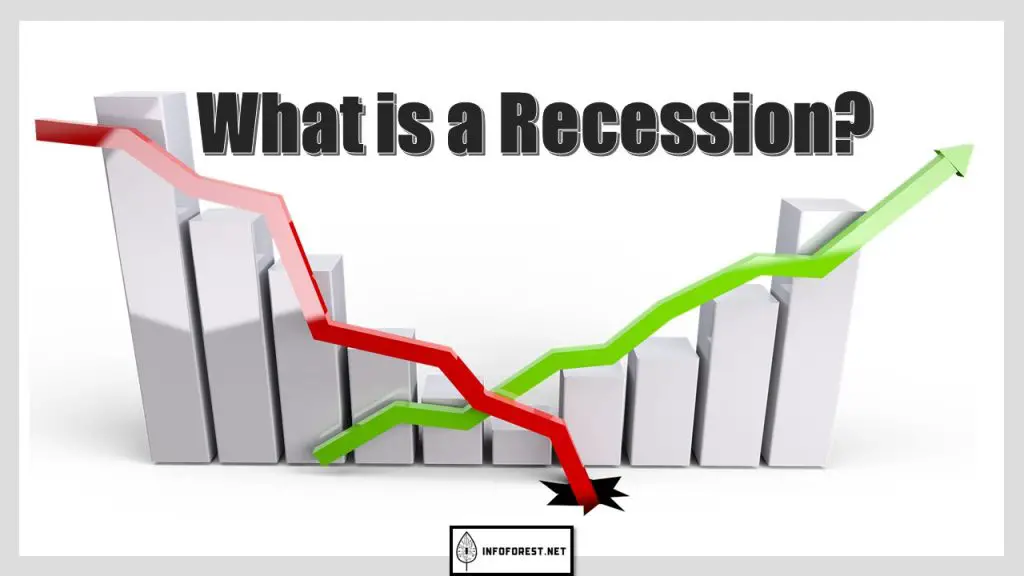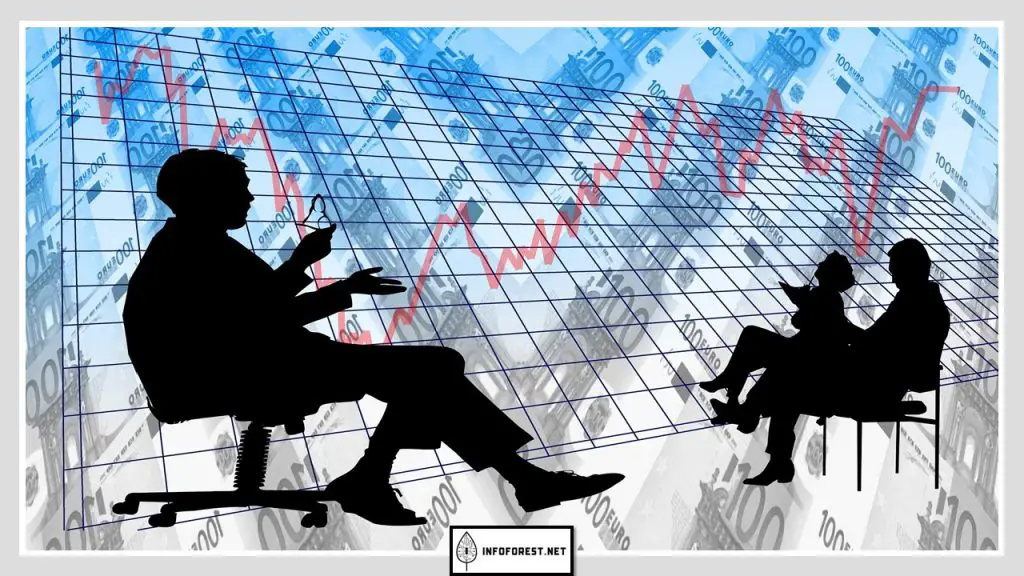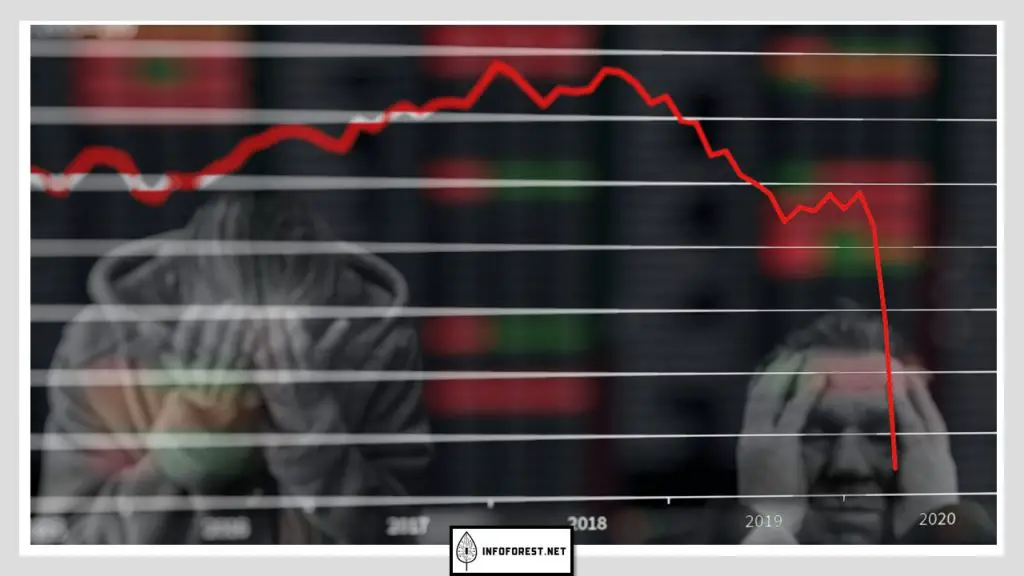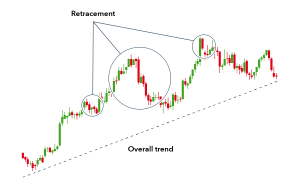
A recession is a period of economic decline that occurs when there is a reduction in economic activity, including reduced spending, production, employment and income levels, over a sustained period of time. Recessions are considered a normal part of the economic cycle and usually follow a period of growth and expansion. However, they can have a significant impact on individuals, businesses, and the overall economy. Governments and central banks often implement economic policies to mitigate the effects of a recession, such as reducing interest rates and increasing government spending. Understanding the causes and effects of a recession is important for both individuals and businesses to make informed decisions about their financial futures.
What is a Recession?
A recession is a significant decline in economic activity that lasts for a prolonged period of time, typically defined as two consecutive quarters of negative economic growth as measured by gross domestic product (GDP). During a recession, there is a decrease in spending, production, employment and income levels. This reduction in economic activity often leads to a rise in unemployment, business failures, and decreased consumer confidence. A recession can be triggered by various factors, such as a financial crisis, a sudden shock to the economy, or a period of excessive debt and speculation. Recessions can have long-lasting effects on an economy and its citizens, including decreased prosperity, income inequality, and reduced access to credit and financial services. To mitigate the impact of a recession, governments and central banks may implement various monetary and fiscal policies, such as reducing interest rates and increasing government spending. Understanding the causes and effects of a recession is important for individuals and businesses to prepare for and navigate during these challenging economic times.

What Predicts a Recession?
There is no single factor that predicts a recession, as recessions are complex and can result from a combination of economic, financial, and political factors. However, some common indicators that can signal the onset of a recession include:
- Slow economic growth: A sustained period of slow economic growth, such as a decrease in the gross domestic product (GDP), can indicate a potential recession.
- Rising unemployment: A steady increase in unemployment, particularly in key industries, can be a sign of a slowing economy and a potential recession.
- The decline in housing prices: A significant decline in housing prices, especially in key real estate markets, can be a sign of a weak economy and a potential recession.
- Decreased consumer spending: A decrease in consumer spending, particularly on big-ticket items like homes and cars, can indicate a reduction in consumer confidence and a potential recession.
- A stock market decline: A significant and sustained decline in stock market values can indicate a potential recession, as investors become less confident in the overall economy.
These indicators can provide an early warning of a potential recession, but it is important to remember that not all recessions are predicted by these signals and that some indicators may not necessarily lead to a recession.
We also invite you not to miss our other popular articles such as:
Difference Between Rose Gold and Yellow Gold– ChatGPT–Difference between left and right Twix–Difference Between Eastern Time Zone and Central Time Zone–Difference Between Capitalism and Communism– Difference Between EST and EDT–How many weeks in a Year– Difference Between Evening and Afternoon – Democrat vs Republican
What Causes Recessions?
Recessions are caused by a complex interplay of factors, including economic, financial, and political conditions. Some common causes of recessions include:
- Financial imbalances: Excessive borrowing and lending, as well as asset price bubbles, can lead to financial instability and a potential recession.
- Decreased consumer spending: A reduction in consumer spending can lead to a decrease in demand for goods and services, causing a decrease in production and employment.
- Reduction in business investment: A decline in business investment can lead to a decrease in economic growth, as companies reduce their spending on new projects and hiring.
- Global economic conditions: Economic conditions in other countries can affect the global economy and lead to a recession. For example, a financial crisis in one country can spread to others and cause a global recession.
- Monetary policy: The actions of central banks and monetary policy can impact the economy, and if interest rates are raised too quickly or inflation rises, it can lead to a recession.
- Political events: Political events, such as wars, political instability, or government policy changes, can also have a significant impact on the economy and lead to a recession.
It is important to note that recessions are a normal part of the economic cycle and can result from a combination of factors. Understanding the underlying causes of a recession can help individuals and businesses prepare for and navigate these challenging economic times.
Recessions and Depressions
A recession is a period of economic decline, characterized by a decrease in gross domestic product (GDP) for two consecutive quarters or more, along with a decline in employment, spending, and production. Recessions are a normal part of the economic cycle and typically last several months to a few years.
A depression, on the other hand, is a much more severe and prolonged period of economic decline. Depressions are characterized by a significant and prolonged decrease in economic activity, including a decrease in GDP, employment, and consumer spending. Depressions are rare events that are much more severe than a typical recession and can last for several years.
It is important to note that the terms “recession” and “depression” are not always used consistently and may be subject to different definitions and interpretations depending on the source. In general, a recession is a temporary decline in economic activity, while a depression is a much more severe and prolonged period of economic decline.
Tell me about Recent Recessions
The most recent major recession was the Global Financial Crisis of 2008-2009, which was caused by a combination of factors including the subprime mortgage crisis, the collapse of the housing market, and the failure of several large financial institutions. This recession affected many countries around the world, causing widespread job losses and a decline in economic activity.
In the United States, the recession officially lasted from December 2007 to June 2009, and was one of the longest and most severe recessions in the country’s history. It was characterized by high levels of unemployment, decreased consumer spending, and a decline in the housing market.
Since then, there have been several other minor recessions in different parts of the world. For example, in 2020, the COVID-19 pandemic caused a sharp contraction in economic activity, leading to widespread job losses and a decline in consumer spending. This recession was unique in that it was caused by a sudden and unexpected event, and its impact was felt across many different countries and industries.
Overall, recessions are a normal part of the economic cycle, and can be caused by a variety of factors, including financial imbalances, global economic conditions, and unexpected events like pandemics.
When Was the Last Recession?
The last major recession was the Global Financial Crisis of 2008-2009. This recession affected many countries around the world and was caused by a combination of factors, including the subprime mortgage crisis, the collapse of the housing market, and the failure of several large financial institutions. The recession officially lasted from December 2007 to June 2009 in the United States and was one of the longest and most severe recessions in the country’s history.

How Long Do Recessions Last?
The length of a recession can vary, but typically they last several months to a few years. The length of a recession is determined by a number of factors, including the severity of the economic decline, the response of the government and monetary authorities, and the ability of businesses and consumers to adapt to changing economic conditions.
In general, recessions that are caused by financial imbalances or sudden events like a pandemic tend to be shorter, while recessions that are caused by deeper structural issues or long-term economic shifts can last longer. The Global Financial Crisis of 2008-2009, for example, lasted 18 months in the United States, while the Great Depression of the 1930s lasted several years.
It is important to note that the duration of a recession can also be influenced by government policies and monetary actions, such as stimulus programs or changes in interest rates. Effective policy responses can help to shorten the duration of a recession and support a faster recovery.
Most Viewed Articles
Conclusion
In conclusion, recessions are a normal part of the economic cycle and are characterized by a decline in economic activity, including a decrease in gross domestic product (GDP), employment, spending, and production. Recessions can be caused by a variety of factors, including financial imbalances, global economic conditions, and unexpected events like pandemics.
The length of a recession can vary, but typically they last several months to a few years. The duration of a recession is influenced by a number of factors, including the severity of the economic decline, the response of the government and monetary authorities, and the ability of businesses and consumers to adapt to changing economic conditions.
While recessions can be challenging for individuals and businesses, they are also an opportunity for the economy to re-balance and restructure, laying the foundation for future growth. Effective policy responses and monetary actions can help to mitigate the impact of a recession and support a faster recovery.
We also invite you not to miss our other popular articles such as:
What Is Bitcoin– What Is PayPal and How Does it Work – Kilometer vs Mile – How to get rid of hiccups What does TBH mean – What does NSFW mean – What does IG mean–What does CAP mean– What is normal blood pressure –What is the rarest blood type–Difference Between Hotel And Motel – Differences Between Chinese and Japanese and Difference Between Zip Code and Postal Code







